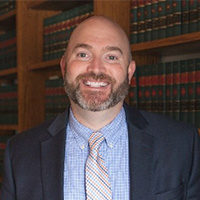Callicoon Center Felony Lawyer, New York
Sponsored Law Firm
-
 x
x

Click For More Info:
-
Cohen & Bernstein, L.L.C.
1360 Clifton Ave #309 Clifton, NJ 07012» view mapCriminal Defense We’re In this Together!
We work hand in hand with our clients to ensure all of your questions are answered and progress through your legal issue is seamless.
800-978-7341
Not enough matches for Callicoon Center Felony lawyer.
Below are all Callicoon Center Criminal lawyers.
Scott A Russell
✓ VERIFIEDCriminal, Wills & Probate, Employee Rights, Banking & Finance
With experience serving the public as an Assistant District Attorney, prosecuting minor traffic infractions and serious felony offenses, as public def... (more)
Cirino M. Bruno
Mediation, Business & Trade, Commodities, Criminal
Status: In Good Standing Licensed: 48 Years
Jacqueline Ricciani
Other, Employment, Criminal, Civil Rights
Status: In Good Standing Licensed: 30 Years
John Ferrara
Criminal, DUI-DWI, Divorce & Family Law, Family Law
 Lindsay Bernstein Clifton, NJ
Lindsay Bernstein Clifton, NJ Practice AreasExpertise
Practice AreasExpertise

